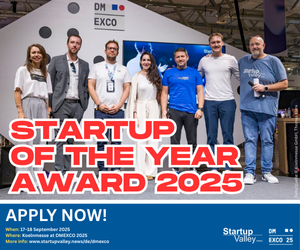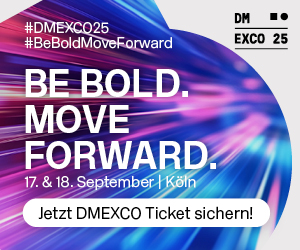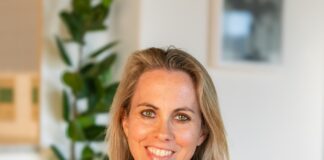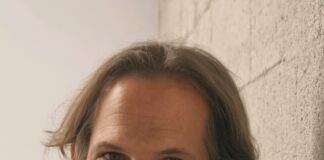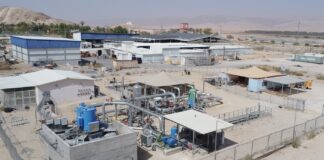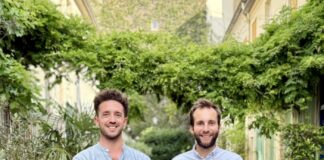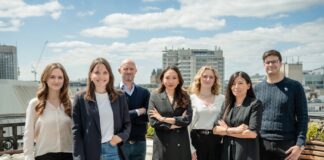Trust Energy Africa high quality, durable, portable and affordable solar products
Please introduce yourself and your startup Trust Energy Africa to our readers!
Elvis Kadhama is 28-years-old Ugandan, clean energy social entrepreneur and environmentalist. He is committed and passionate about changing people’s lives, income and saving the environment through catalyzing clean energy transition in rural Uganda. He’s committed to change the mindset that most people are having towards carbon emissions, he believes through sensitization and training of rural populations on the health, financial and environmental benefits of clean energy products, Elvis graduated from Uganda College of Commerce Tororo in 2015 with a Business diploma, Elvis is a Young African Leadership Initiative-YALI RLC EA (2018) Alumni, Bridges for Enterprise Ambassador Uganda, One Young World Ambassador, Elvis is the Founder and Executive Director of Trust Energy Africa Limited and he also believes in the role clean energy products have in improving individual livelihoods and sustainability.
Trust Energy Africa Limited (Formerly Pearl Entrepreneurs Academy) is a cleantech social enterprise established in 2018 to empower under-served markets in last mile communities with holistic solutions to their economic and social challenges by providing them with access to clean, affordable, durable and high-quality Solar products and economic opportunities. The Enterprise aims to spread clean energy products across Uganda and Africa with the help of a direct sales network of Entrepreneurs.
Trust Energy Africa provides education, distribution, financing and after-sales support for clean energy products which include portable solar lanterns, and Solar Home Systems to families living on less than $2 a day in rural Uganda that create healthier and safer homes, increase productivity, reduce household expenses and provide additional income-generating opportunities. Trust Energy works with families in rural and urban slums of Uganda to address their energy needs and Trust Energy’s range of solar products is designed to replace kerosene, allowing families to save money while improving their health.
How did you get the idea of Trust Energy Africa?
For years, my family was exposed to smoke and fumes while lighting using kerosene lamps, unaware of the effects that these dirty fuels would have on our health and wellbeing. In 2018, my grandmother died in a fire outbreak caused by a kerosene lamp and after spending extensive time implementing microfinance initiatives in rural Mayuge District, I knew firsthand the suffering arising from a lack of access energy in remote communities.
In the same year 2018, I witnessed Annet (a widow) lose both her home and her son in the blink of an eye due to a kerosene lamp fire. This incident echoed countless stories shared by the women she was working with in their savings group, who seemed to have accepted a dangerous fate in the face of limited energy options. I felt that even in the remotest areas of the world, renewable energy solutions could alleviate that suffering. While solar seemed like an obvious, scalable solution, there was a lack of awareness and distrust in solar products were a major barrier to adoption.
In February, 2018 I conducted research in rural communities of Uganda and discovered that, approximately 4 million people die prematurely from illness attributed to household air pollution produced by inefficient energy sources. I learned about alternative energy sources during the burial of this Annet’s son. I was determined to improve the quality of life for low-income households in rural communities such that nobody else would have to face the pain and financial strain caused by pollutive fuels. All these stories beat me far but later inspired me to come up with a holistic solution to the problems hence founding Trust Energy Africa Limited.
Why did you decide to start with Trust Energy Africa?
Trust Energy Africa addresses the environmental, financial, and health issues caused by unsustainable lighting practices in rural Uganda. There is a critical need for clean energy solutions in Uganda. According to government sources, only 15% of the population in Uganda (independent sources put this as low as 9%) has access to electricity. This translates to 29 million people, mostly low-income populations in rural areas and urban slums – who burn fossil fuels, usually kerosene, for light and heat. It is estimated that 1 million liters of kerosene are burned daily in Uganda alone. Households and small businesses that rely on kerosene for lighting spend up to 20 percent of their annual incomes on energy.
They spend more on medical bills due to the negative impact on health outcomes from kerosene fumes. 30 percent of the population that uses kerosene report having lost property to kerosene related fires, yet kerosene is expensive, frequently cause fire outbreaks and emits significant amounts of CO2, causes deforestation as people cut down trees to get firewood to burn at night and numerous eyes, lung and chest complications affecting especially women and children.
What is the vision behind Trust Energy Africa?
Trust Energy Africa envision a world where low-income communities in Uganda have access to clean energy products that transform their health, environmental and socioecomic outcomes and break the poverty cycle.
How difficult was the start and which challenges you had to overcome?
Lack of Seed funding: When we started, we did not have funds to recruit team members, acquire an office space, or head sales, finance and administration. However, to get startup capital, we formed a partnership with Enventure enterprises Uganda, offering us clean energy loans at affordable interest rates. We’ve also received grants from Family and friends, the Pollination Project and the McGinnity Family Foundation.
Entrepreneurship: We had limited access to information about establishing and sustainably growing a business. To learn more, we participated in several entrepreneurship boot camps and programs.
Impact Tracking: We face difficulty in tracking quantitative and qualitative impact accurately. However, we collaborated with pro-bono consultancy organizations and Hubs to create impact tracking tools.
Competition: Our Company faces competition from fake, substandard clean energy products on the market, leading to high cases of defaulting customers. To overcome competition, we educate our customers on the benefits offered by our products, including but not limited to 1-2 years of warranty and a 3-5-year lifetime of products.
Consumer Attitudes: Changing customer perception from traditional cooking and lighting practices remains difficult. We tried our best to change customer attitudes towards clean energy products by providing them with education and training through village meetings.
Who is your target audience?
Trust Energy targets customers that are of low-income households living on less than $2 PPP a day. In Uganda, these people are generally smallholder famers and small business owners living in under-served, off-grid markets, aged 18-65 years, both men and women, and our beneficiaries are family members of our customers, namely female family members and children, who experience the highest exposure to unsustainable lighting and cooking practices.
What is the USP of your startup?
Trust Energy provides customers access to high quality, durable, portable and affordable solar products, convenient delivery to customers door steps, after- sales service like (product maintenance and repair), follow up calls on customers. To ensure we reach the people in need, we recruit local women and youths as Energypreneurs who bring solar and cook stoves straight to families’ doorsteps, educating customers about the new clean energy technology and providing a payment plan to fit their budget.
Can you describe your typical workday?
Elvis likes to start each day by going over my schedule to make sure any sales, calls or meetings I have are on top of mind and I get any prep work for those done first thing. Then, I usually answer my emails while I’m still fresh.
Where do you see yourself and your startup Trust Energy Africa in five years?
I am someone who loves learning about new technology and trends around the world, so in the next five years, I see myself as having established a strong knowledge on what’s new and emerging in the digital marketing in clean energy, I also see myself and Trust Energy as a big energy company employing over 1,000 youth and women as Energypreneurs, impacting over 100,000 low income families and leading a successful team that is result oriented.
What 3 tips would you give to founders?
As a self-made social entrepreneur, I advise aspiring founders out there that;
Don’t Worry About “Perfect”
One piece of advice at the very beginning would be: “Don’t try to perfect your product too much before launching it.” The more time you spend building your product without getting feedback from real users, the higher the risk you are taking. At some point, you might even realize that your customers want something very different from what you have just given them.
You will find that most early adopters are more than happy to use a new product, even though it may still need some tweaks to work optimally. In fact, I’ve come to see that most of them just love to be part of the process. That makes it your job to align your expectations and be open to their feedback.
Teamwork Matters
There are three important things that must be in place when you start a company. The first (and most essential) is having a team that is completely aligned in terms of your vision. That’s because building a company is not about building a personal brand – it’s about building an entity that outlasts you, and that cannot be accomplished by just one person. Your team members should all have complementary skill sets that enable your vision to come to life.
The second thing is the idea itself. It needs to be one that you feel can materially change the way that things are done now and in the future. Building a company is a long-term commitment, and the worst thing you can do to yourself as a founder is to waste those early years on concepts that might not ultimately be worth your time.
The third part is your support system. A support system can range from your family to your friends to your business ecosystem, and even to early investors who might provide funding. These are the people who will support you and help you stay sane while you’re going through the complex process of getting your company off the ground.
Think Like a Customer
Too often, founders work on an unproven idea for months before taking it to the market. That’s a mistake. The single condition for having a real business is to have a paying customer. If someone is willing to pay for your idea, it means your solution solves a real problem. This is why you need to think and act like a customer-first company from day one.
Test your assumptions on real clients with real needs in the real world. Don’t spend too much time strategizing, because real world feedback will either crush your initial idea or force you to tweak it in order to be viable. I like to say “plan to change the plan” because execution eats strategy for breakfast. Bringing customers inside your company and inviting them to the drawing table will be your best decision ever. Chances are the problem you are solving for this client is universal, and experienced by most companies who share similar traits. Do unscalable things first and then take these learnings to build your path to scale.
Thank you Elvis Kadhama for the Interview
Statements of the author and the interviewee do not necessarily represent the editors and the publisher opinion again.


